This Is Why Your Cat Wants to Eat ALL THE TIME (Revealed)
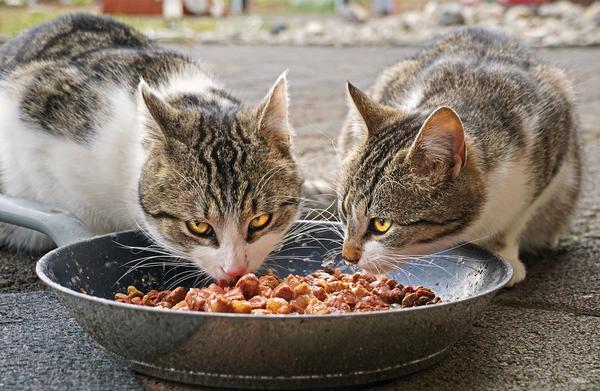
You'll agree with me when I say:
It's downright exhausting when your cat acts like a bottomless pit of hunger, always begging for food. 😩
You feel like you're failing as a pet parent.
But hey, don't despair!
Let's uncover the truth, shall we?
Cat Hungry All the Time? Medical Causes of Increased Appetite
If your cat is constantly hungry, it could be due to medical reasons. Hyperthyroidism, diabetes, and cancer are potential causes. Parasitic infections, pregnancy, and certain medications can also increase their appetite. Consult a vet for a thorough check-up and appropriate treatment options.
Hungry all the time?
Bowl full, then empty.
Your cat always seems hungry.
Could be medical reasons.
Hyperthyroidism, overactive thyroid.
Makes your cat eat like crazy.
Weight loss, excessive thirst, restlessness too.
Diabetes is another possibility.
Cats can get it too.
Insatiable appetite is a common sign.
Cancer can disrupt metabolism.
Tumors in digestive system or elsewhere.
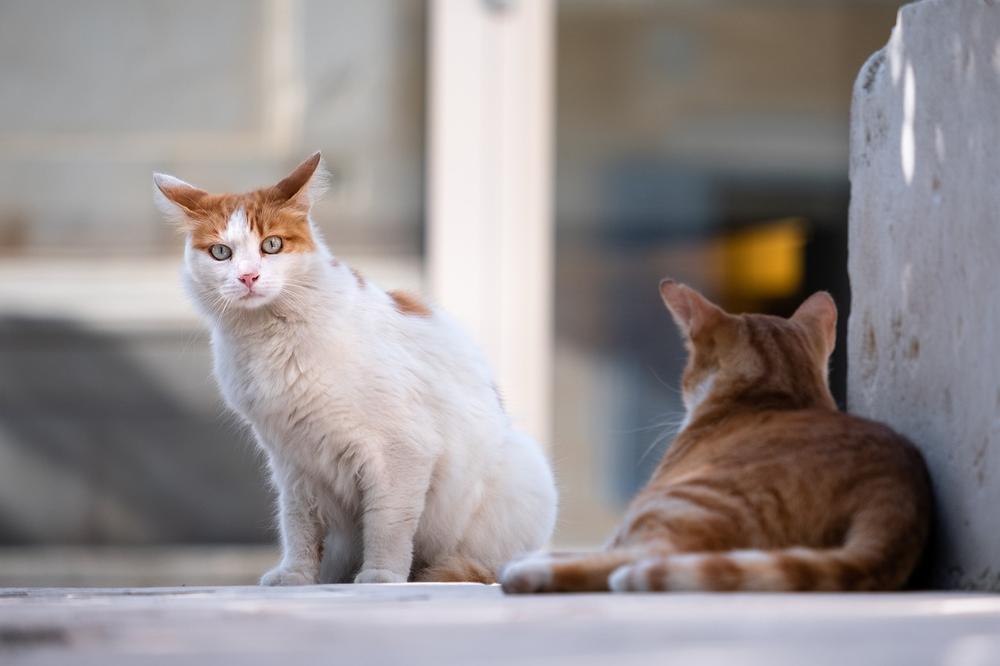
But wait, could be something less serious.
Parasitic infections like roundworms and tapeworms. Feast on your cat's nutrients, leave them wanting more. Pregnancy and certain meds can increase their appetite. Watch out if your cat falls into these categories.
Best to take them to the vet.
Thorough check-up and tests needed.
Blood work, urinalysis, imaging techniques.
Find out what's causing the constant hunger.
Treatment options vary based on diagnosis.
Meds, dietary changes, or both.
Work closely with your vet to help curb the hunger.
Keep a close eye on them for now.
Give them love and care they need.
Main points I'll expand upon further down this article:
- Chewing on non-food items may indicate an issue. Consult the vet.
- Cat's constant hunger may indicate underlying issues like boredom or medical causes.
- Establish a consistent feeding schedule for cats lacking self-control.
- Snacking when not physically hungry can lead to health problems.
- Food puzzles can stimulate and engage cats, preventing overeating.
- Kittens need twice the nutrients but not overwhelmed by large quantities.
- Interactive toys and alternative feeding methods can break begging habit.
- Dividing meals into smaller portions throughout the day promotes satiety.
- Proper introductions and training are essential for a harmonious environment.
- Understand and address bizarre cat behaviors to meet their needs.
And, on top of that, there is one more possibility to consider when it comes to your cat's constant hunger.
In some cases, this could be a sign of an underlying gastrointestinal disorder, which may also manifest through behaviors such as chewing on non-food items.
I recommend notifying your veterinarian about this issue immediately, as it could indicate a more serious underlying problem that needs attention.
Why Is My Cat Always Hungry?
Chronic hunger in your cat could point to an underlying gastrointestinal disorder, which might also lead to chewing on non-food items.
Don't ignore these signs—reach out to your veterinarian for a proper diagnosis. Remember, excessive hunger may be an indication of an issue that requires attention.
Ensure your furry friend gets the care they need by alerting your vet about this concerning behavior.
Cat Always Hungry? How to Occupy the Boredom Eater
Got a hungry cat who's always looking for a bite?
Need something to occupy their mind and keep them from munching out of boredom?
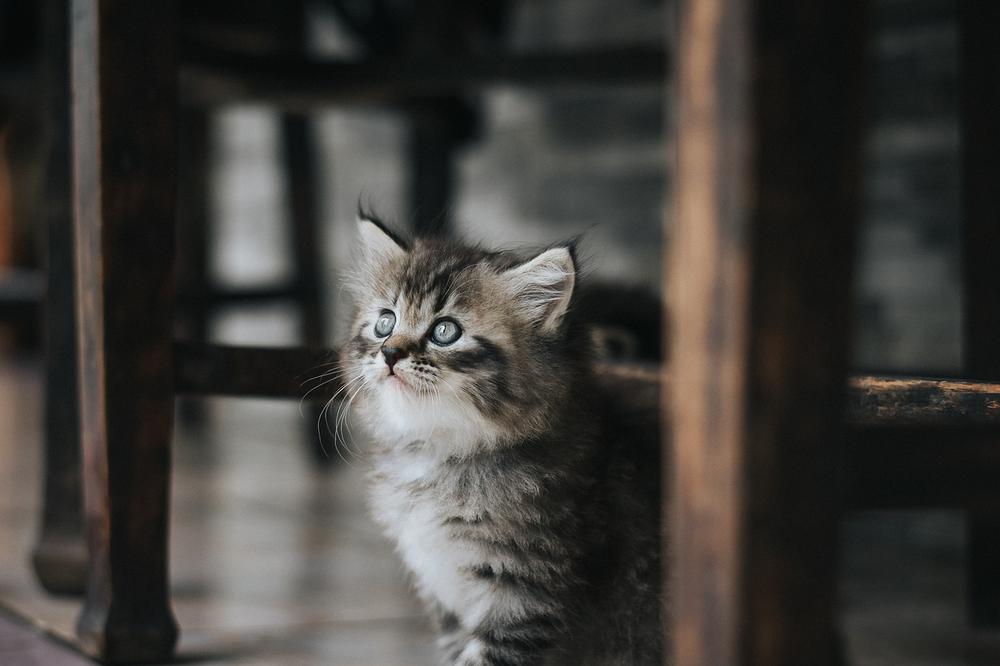
I've got you covered.
Here are some ideas:
- Get your paws on interactive toys that'll keep your feline friend engaged and entertained while they chow down. These toys will give their brains a workout while they eat.
- If your cat has self-control issues, set up a consistent feeding schedule. This can stop them from constantly snacking when they don't really need to.
- Don't underestimate the health risks of excessive snacking. It can lead to problems like obesity, osteoarthritis, urinary issues, and diabetes. So it's important to do something about it.
- Food puzzles are the cat's meow when it comes to keeping them stimulated. Look for ones with rounded surfaces that are easy for them to bat around.
- Kittens may need twice the nutrients compared to adult cats, but don't overdo it with the food portions. Keep them small so they don't get overwhelmed.
- Divide your kitty's meals into smaller portions throughout the day and use puzzle toys or dividers. This will slow down their eating habits and help them feel full and satisfied.
- Shake up your cat's routine by introducing interactive toys and mixing up their feeding methods. This will banish boredom and break the habit of begging for food.
- Remember, if you want your cats and dogs to live in peace, proper introductions and training are key. Create a harmonious environment for everyone involved.
- If your furball is acting strange, try understanding and addressing their needs. It just might explain why they're behaving oddly.
- Don't forget, keeping your cat mentally stimulated during mealtime is just as important as giving them nourishment. Feed their minds along with their bellies. 😺
And finally, if you've tried all these tips and tricks and your cat is still constantly hungry, I highly recommend checking out my article on the possible reasons for a nursing cat being always hungry.
It's important to understand the underlying causes and find the best solutions for your furry friend's well-being.
Discover more in my dedicated blog post, Nursing Cat Always Hungry.
How to Determine Whether Your Cat Is Being Properly Fed
Here's how you make sure your cat is fed properly:
- Know how much food your cat needs, considering its breed and stage of life.
- Let your cat have snacks whenever it wants throughout the day.
- Keep an eye on any changes in appetite or eating habits.
- Stick to a consistent feeding schedule.
- Start weaning kittens from their mom using good wet food when they're six weeks old.
- Give little meals four or more times a day if the kittens are under 12 weeks old.
- Cut the meals down to three times a day if the kittens are between 12 weeks and six months old.
- Once your cat reaches six months, switch to two meals a day.
- Feed your cat top-notch food that suits its specific needs.
- Look at the recommended feeding instructions on the cat food package.
- Adjust regular meal sizes based on the number of calories in treats.
Also, weigh your cat often and talk to your vet about the right portion sizes and types of food.
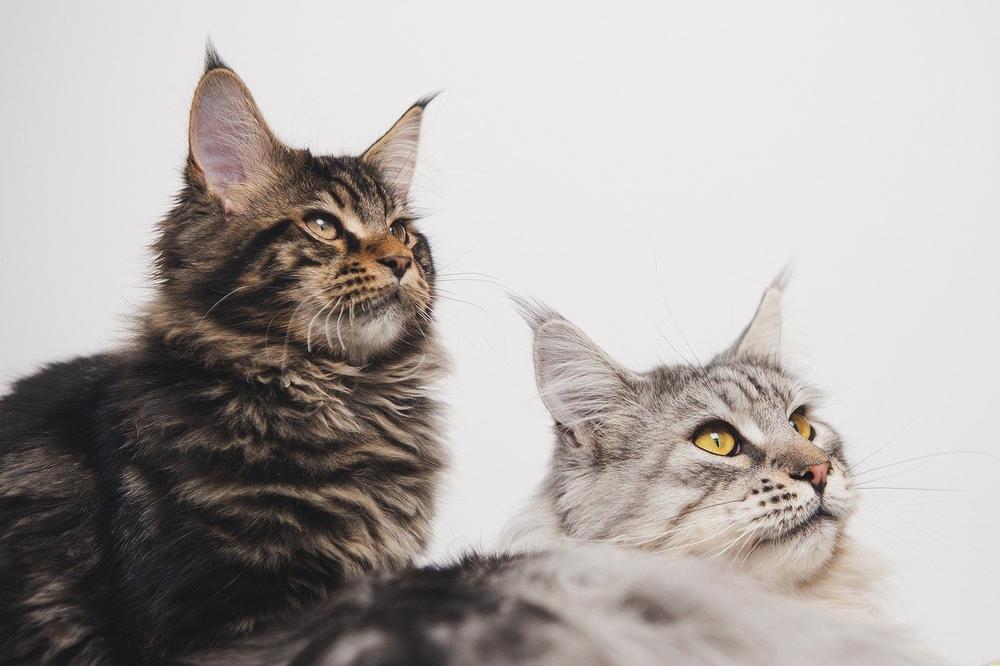
And don't forget to take care of cleaning up anything that comes up. 💪
When a Healthy Appetite Is More Than Healthy
When you're figuring out how your cat eats, think about these things:
- Consider the characteristics and appetites unique to their breed.
- Adjust their food based on how big they are, how active they are, and how healthy they are.
- Make sure they get enough of the good stuff like protein, taurine, vitamins, minerals, enzymes, fatty acids, and water.
- Give them the right kind and amount of food based on how old they are and how much they move around.
- Feed them wet cat food with more water in it so they feel full while eating fewer calories.
- Don't let them graze all day long to avoid getting too heavy and having health issues.
- Talk to the vet if they act weird when it comes to eating, like not wanting to eat or always begging.
- Get more tests done if they're constantly super hungry for more than 5-7 days or if something else seems off.
- Know that some cats just naturally want to eat a lot, but there could be a fix for excessive hunger if you catch it early.
- Watch for signs of bingeing, like eating really fast, throwing up after meals, begging constantly, trying to snag food from others, and sneaking bites of rejected food.
Keeping tabs on your cat's appetite is vital for their overall health and happiness.
What to Do if Your Cat Is Always Hungry
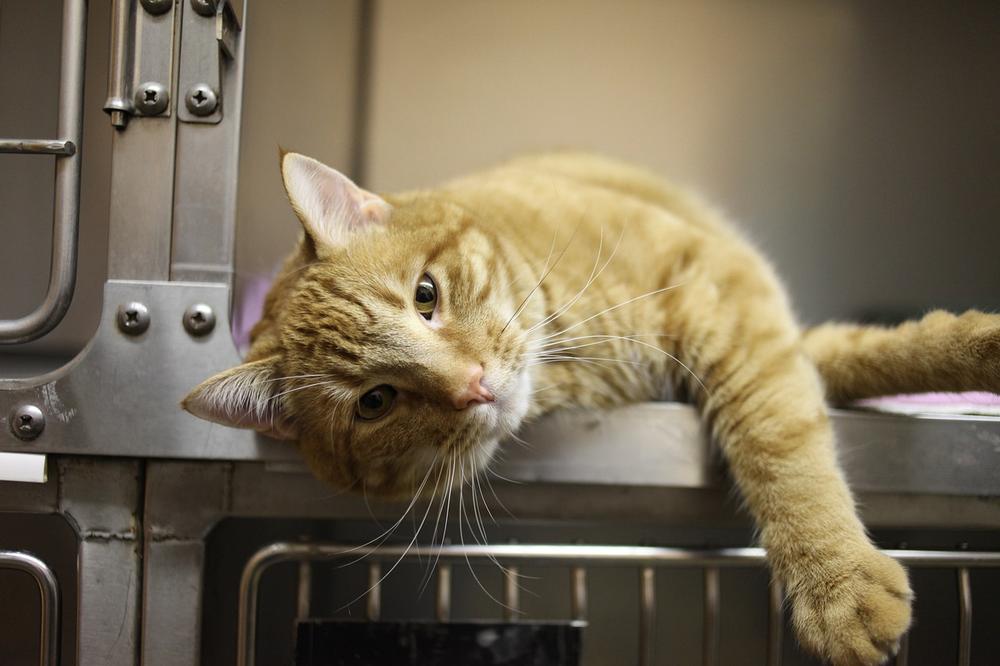
To address your cat's constant hunger, here are some actionable steps you can take:
- Talk to your veterinarian: Schedule an appointment to discuss your cat's increased appetite and rule out any medical causes or nutritional deficiencies.
- Implement gradual diet changes: If your cat is constantly begging for food, consider transitioning them to a more satiating diet. Consult with your vet to determine the best options for your cat's health and preferences.
- Measure portion sizes: Use measuring cups to ensure accurate portion sizes based on your cat's weight and activity level. This helps prevent overfeeding and ensures nutritional balance.
- Offer regular meals and snacks: Establish a consistent feeding schedule that includes scheduled meals throughout the day. Avoid giving in to extra treats or snacks outside of these designated times.
- Provide mental stimulation: Engage your cat with interactive toys, puzzle feeders, or treat-dispensing gadgets to keep them mentally engaged and distracted from constant hunger.
- Monitor weight and body condition: Regularly weigh your cat and assess their body condition score to ensure they're maintaining a healthy weight. Adjust their food portions as needed under the guidance of your veterinarian.
Ensure your cat's overall well-being by taking these steps and consulting a professional to tackle its excessive hunger.
And that wraps up today's article.
If you wish to read more of my useful articles, I recommend you check out some of these: How Long Can a Cat Go Without Eating, Pregnant Cat Eating a Lot, How Long Can a Newborn Kitten Go Without Eating, Cat Seems Hungry but Wont Eat, and Do Cats Need Food and Water at Night
Talk soon,
-Sarah Davis